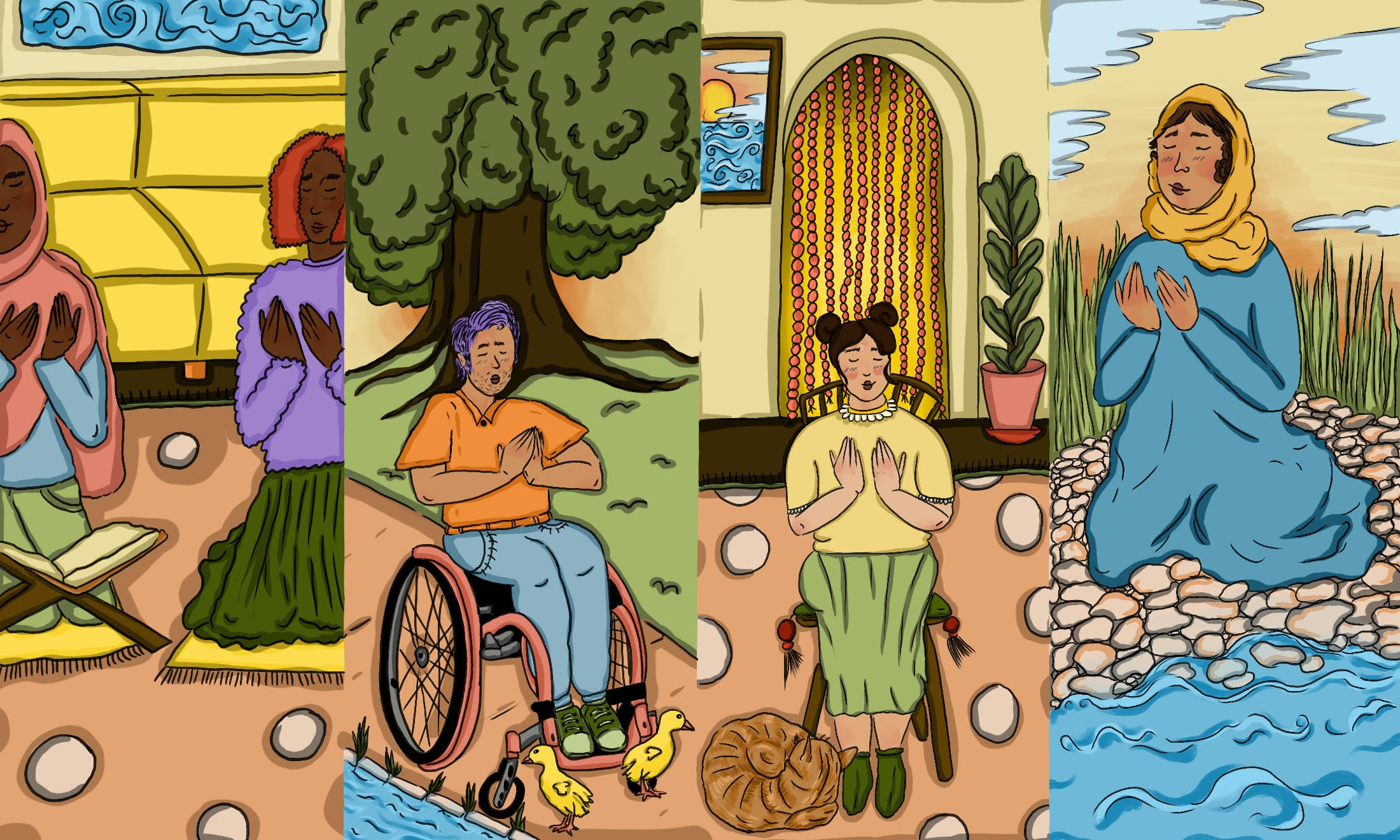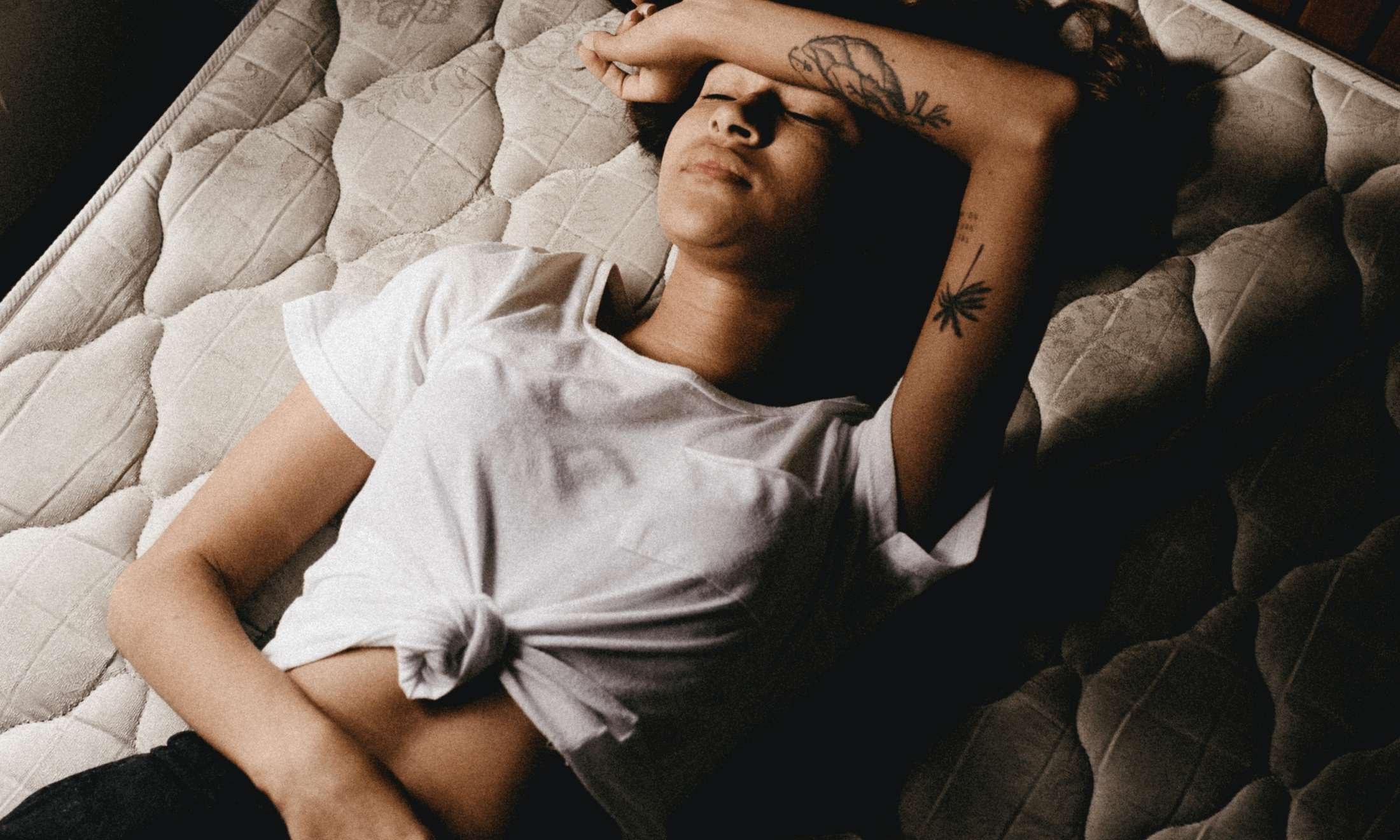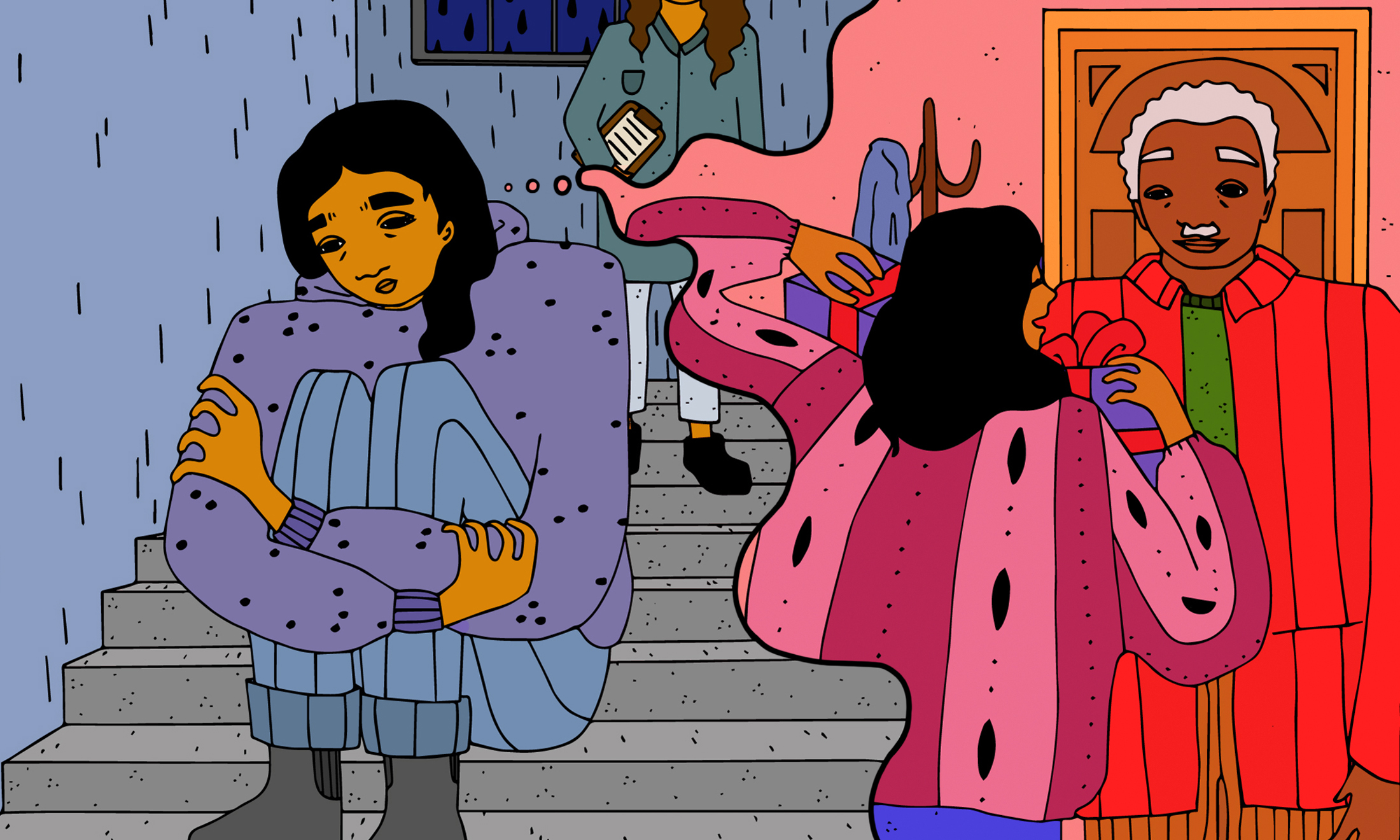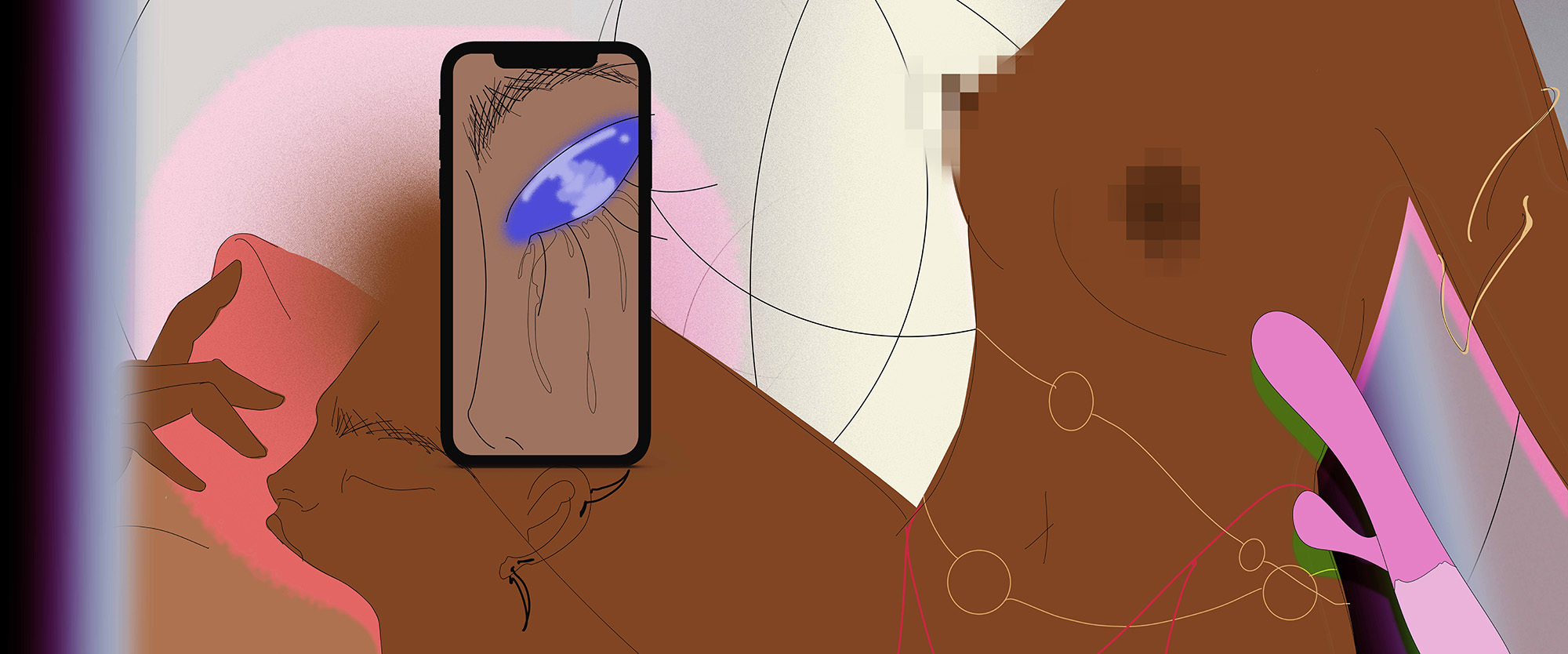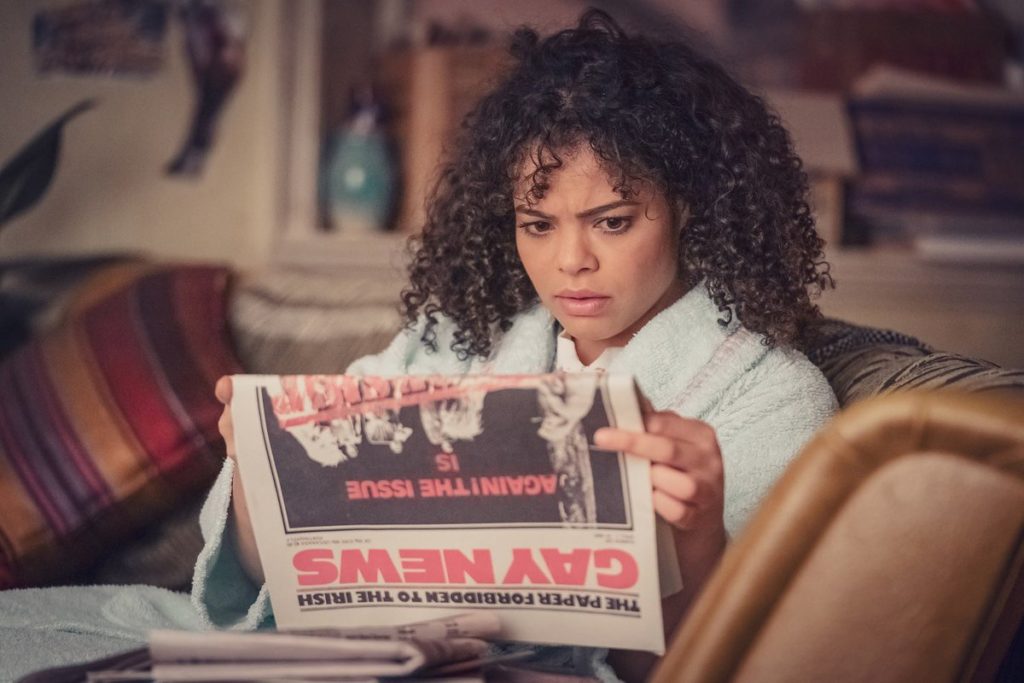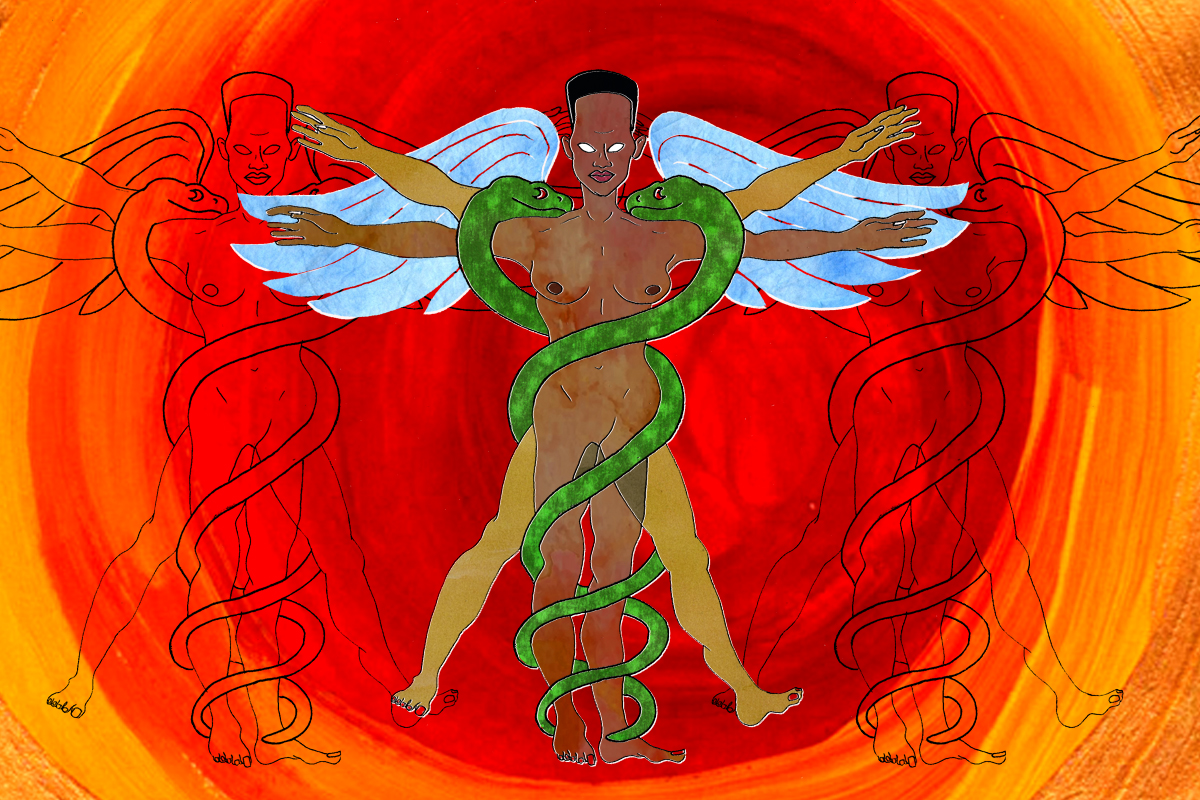
Illustration by Tessie Orange-Turner
Coronavirus is a reminder that science and medicine has a ‘Magical Negro’ too
From rumours that black people don't feel pain, to suggestions that our melanin will protect us from Covid-19, Dr Annabel Sowemimo explains why the idea of the ‘Magical Negro’ is harming black people more than we think.
Annabel Sowemimo
27 Mar 2020
Illustration by Tessie Orange-Turner (@turningorange)
“It’s interesting isn’t it, that there don’t seem to be many black people affected by the coronavirus”.
I knew it was only a matter of time before these ideas started to take hold: the notions that black people don’t feel pain, that black people are stronger, that we don’t get x or y disease just because of our skin tone. I heard the above quote uttered when I was speaking to a relative, about the-then emerging Covid-19 outbreak. It’s spread across the globe, hitting European countries like Italy particularly hard – there it killed 793 people in a single day. However, up until now, much of sub-Saharan Africa seemed to have been spared by the virus, only reporting its first coronavirus death in Burkina Faso last week.
With uncertainty comes fear and, unsurprisingly, myths such as that of “the Magical Negro”, whose melinated skin protects him from everything. The term “super duper magical negro” was coined by director Spike Lee in 2001, when he was talking to a group of students about the black side kick character often present in films whose purpose is to aid the white protagonist storyline. Yet the “Magical Negro” figure is not something just limited to film, but also a key figure in race-based science and medicine. It’s the ideology that melanin makes black people stronger, less susceptible to infections and in some ways less in need of medical care.
“The ‘Magical Negro’, whose skin alone gives her super powers, is one that we as a community must seek to banish”
Numerous rumours on Twitter, Instagram and WhatsApp fuel the “Magical Negro” myth including one from Dr. Umar Johnson who self-describes as a “Certified School Psychologist, and Doctor of Clinical Psychology”. Umar claims that “It’s difficult to infect Afrikans with corona, don’t be surprised if the WHO/RPC/CDC releases one of their Negro flu strains in one of our communities. Aids/Ebola are taking too long”. A recent poll of 1000 people in Nigeria demonstrated that one quarter felt that they were immune to coronavirus with 5% stating that the virus “was not for Africans”.
I have written previously on the need for Western health professionals to acknowledge past colonial atrocities like the Tuskegee trials, so we can address the skepticism and distrust amongst black communities towards medical institutions. Yet, the idea of the “Magical Negro”, whose skin alone gives her super powers, is one that we as a community must seek to banish.
During the yellow fever epidemic in Philadelphia, Pennsylvania in 1793 white physicians believed that black people were immune to the virus, with commentators fixating on the low mortality of black people at the time. Despite black abolitionists at the time noting the suffering caused by yellow fever in their own communities, the belief continued to circulate into the 20th century. The idea that black people were simply unaffected justified the lack of access to adequate health facilities and likely contributed to more deaths. It can be traced back to colonial authorities and slave owners to justify their oppression – black people were both dehumanised and made to appear “magical”, able to withstand the most extreme circumstances.
The allure for black communities to believe that more melanin is inherently protective is clear: the idea that “my skin acts as a powerful shield, a weapon against an unknown virus” is intoxicating. As black people, racism and microaggressions due to our skin tone are something we are accustomed to. Being able to believe that #BlackGirlMagic is literally providing me with super powers against a world that I can’t control.
So, if it is not our skin protecting us against coronavirus what could be the reason that those of African descent are seemingly less susceptible? More recently, activist and Pan-Africanist Chaka Bars posted the recovery of a black African man who contracted coronavirus in China, supposedly due to both “his blood genetic composition of sub-Saharan Africans” and “because of his black skin, the antibodies of blacks are three times stronger, powerful and resistant compared to whites”. If Chaka Bars had forgone the useless magical skin trope then some of his assertions may not be too far off.
A recent study of 3694 people living in Wuhan, China (the initial region of Covid-19 outbreak) demonstrated that people with blood group A have a significantly higher risk for acquiring COVID-19 compared with non-A blood groups, whereas blood group O has a significantly lower risk for the infection compared with non-O blood groups. Notably, those of African descent are more likely to have a group O blood type.
“Even if some black people do possess a measure of a protective factor against Covid-19 this does not mean that all black people are protected”
This is not dissimilar to other infections such as malaria or hepatitis, because they show preference for particular blood groups. Those of African descent are more likely to have red blood cells without Duffy (a receptor on red blood cells) which can reduce our chances of catching certain malaria parasites. Yet without access to the right prevention measures, stable health systems and infrastructure malaria still kills over 320,000 people living in sub-Saharan Africa every year. Even if some black people do possess a measure of a protective factor against Covid-19 (which is very much still unproven) this does not mean that all black people are protected.
Dr Sarah Ann Filson, an infectious disease and microbiology registrar at Northwick Park Hospital states: “It is unclear why it has taken longer for the outbreak to affect sub-Saharan African countries. It could be due to different health-seeking behaviours in these countries either due to lack of access to healthcare or cultural beliefs especially for a disease where the majority of cases are mild. Having said that I think it has been good to see African countries effectively isolating and contacting tracing the cases they have had…. I do think that these rumours can be dangerous and give people of African descent a false sense of security meaning that they do not follow advice from credible sources on things such as social distancing and good hand hygiene.”
The World Health Organisation (WHO) has warned that African countries that have some of the most fragile health systems in the world should not become complacent. That governments must take action during the earliest stages of infection. It has been comforting to see countries such as Kenya, Nigeria and Ghana implement stricter public health measures.
Let us put an end to the speculation and rumours. Stating that our skin tone, or our blood alone will save us leads to those that are still susceptible being overlooked, the scientific community failing to search for causes for illness and communities failing to get the research & treatments that we deserve. So whilst the legend of ‘the mythical Negro’ can seem enticing or simply hilarious, it isn’t – it has been killing people for centuries.
Dr Annabel Sowemimo is a Trustee of Medact Charity and founder of Decolonising Contraception.

Britain’s policing was built on racism. Abolition is unavoidable

How Pakistan’s Khwaja Sira and transgender communities are fearing and fighting for their futures

Their anti-rape performance went viral globally. Now what?


